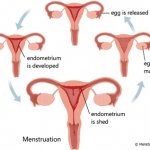How Long Does A Hepatitis B Vaccine Last
How long does a Hepatitis B vaccine last?
Before we go asking questions of ‘How long does a hepatitis B vaccine last?’ we must first know whether or not we were given the hepatitis B vaccination shots, and if yes then how long ago were they given. A few things that we need to know about the Hepatitis B virus, and why is it considered a chronic infection. Hepatitis B virus causes the infection of liver and spreads out in the entire body later through the saliva, blood, semen or vaginal fluids. Some of the people infected with this virus become chronic carriers. Out of the chronic carriers 15% to 20% people die of either cirrhosis or liver cancer.
It is a myth that the Hepatitis B vaccine is something that is to be followed your entire life. However there are a few factors that challenge the ‘immunological memory’, in simplified terms the body’s immune system’s capacity to retain the information of the encounter with an antibody. So before asking yourself ‘How long does a hepatitis B vaccine last?’ we must first know what are the factors that increase the risk of being infected with Hepatitis B virus, as a result of the constant struggle of the body’s immune system with antigens?
Concerning ‘How long does a hepatitis B vaccine last , Hepatitis B virus is more prone to affect people who change their sexual partners often; who involve in homosexuality specifically Men (because of blood that can be exchanged); Drug addicts; close relatives living with the infected person; people with liver and kidney diseases; patients who regularly transfuse blood; infected babies from mothers who are infected; prostitutes etc. The immunologic memory of the immune system depends on similar factors and it may last for 23 years and provide protection against chronic HBV infection.
The simple answer to ‘How long does a hepatitis B vaccine last?’ is that the full course of a  Hepatitis B vaccine includes three vaccinations that may be enough to last for a life time. The second dose of this series should be given one month after the first one, and third dose should be 6 months after the first one. These vaccines can be given with other vaccines esp. Hepatitis A + B. It is also important to realize that normally protective antibodies induced with hepatitis B vaccine lasts up to 15 years. Normally children are vaccinated and with the passage of time the level of immunity decreases and the risk of hepatitis B infection increases for as long does the hepatitis vaccine last.
Hepatitis B vaccine includes three vaccinations that may be enough to last for a life time. The second dose of this series should be given one month after the first one, and third dose should be 6 months after the first one. These vaccines can be given with other vaccines esp. Hepatitis A + B. It is also important to realize that normally protective antibodies induced with hepatitis B vaccine lasts up to 15 years. Normally children are vaccinated and with the passage of time the level of immunity decreases and the risk of hepatitis B infection increases for as long does the hepatitis vaccine last.
The people who should not receive this vaccination are people who are allergic to yeast or to any components of the vaccine; to infants who are below one year; people who are suffering from moderate to severe illness; and to breast-feeding mothers. The results show that people between the ages of 18-50 after the second dose develop antibodies after 2 weeks and most after 1 month. And almost all the people develop the antibodies in one month of the final dosage to protect against the infection for as long as the hepatitis vaccine last.






